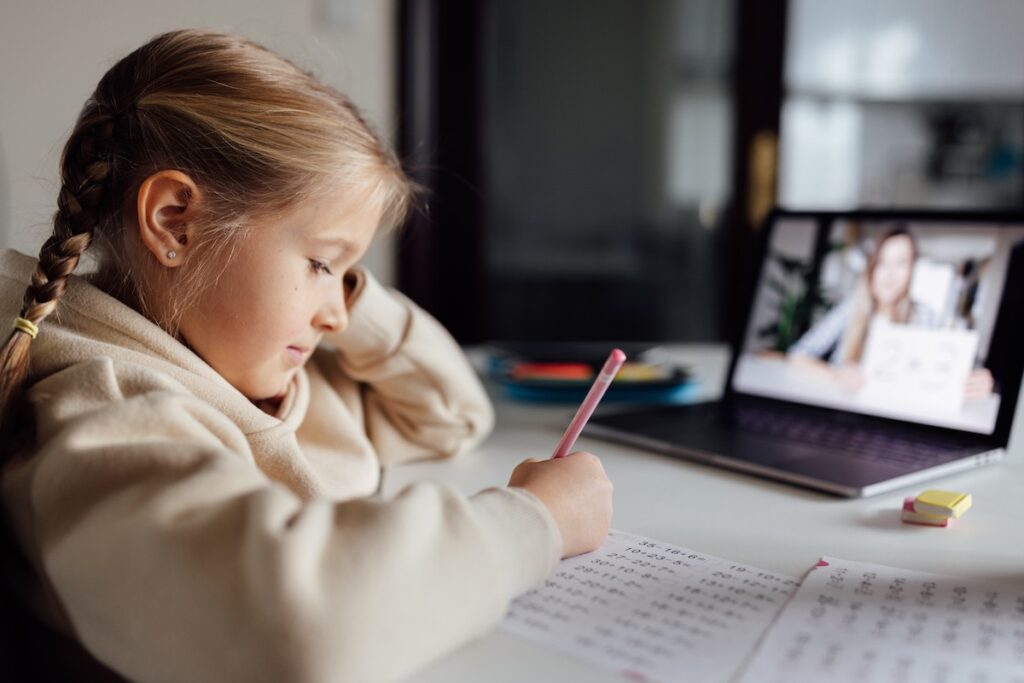Онлайн-школа » Блог
Блог

Чем занять ребенка после школы: полезные и интересные идеи
Школа — это серьезная умственная нагрузка. После 6–8 уроков у ребенка истощены не только силы, но и способность концентрироваться. Поэтому правильный досуг школьника — не

Как быстро заговорить на русском языке — ТОП-5 способов выучить русский язык
Многие, кто начинает изучение русского языка, сталкиваются с одной и той же проблемой: понимают отдельные слова, читают неспешно, даже пишут короткие фразы – но не

Как учить русский язык через видеоигры
Сегодня все больше родителей и педагогов задаются вопросом: как учить русский язык детям, если традиционные учебники вызывают сопротивление, а мотивация падает после первых же заданий?

Секреты поддержания языковых навыков в свободное время — как не забыть ребенку русский язык
В условиях жизни за пределами русскоязычных стран поддержание родного языка у детей становится не всегда простой задачей. Дети быстро осваивают язык окружения и забывают язык

Русские фразы для small talk: погода, дети, планы
Что такое small talk и зачем он нужен? Small talk — это короткие, неглубокие беседы на нейтральные темы. Например, о погоде, планах и прочих мелочах.

История русского языка — происхождение и отличительные особенности
Русский язык – родной для миллионов людей в России и за ее пределами. Этот язык славится эмоциональностью, огромным количеством эпитетов и синонимов и высокой сложностью

Почему январь — лучший месяц, чтобы начать учить язык
Когда лучше начинать учить язык? Многие наши ученики впервые приходят к нам не в сентябре, а в январе. Но почему именно январь — лучший месяц,

Поздравление с Новым 2025 годом от Palme School
Спасибо, что этот год вы провели с нами! Дорогие семьи, родители и вдохновители наших учеников! 2025 год стал для нас по-настоящему международным: 31 653 урока

ИИ-образование в американских школах: что это и почему это важно
Американские школы одна за другой переходят к активному включению искусственного интеллекта в учебный процесс. Яркий пример — партнерство бывшего спортсмена Колина Каперника с округом Prince

Почему Оливье — символ Нового года в России
Что самое главное в праздновании Нового года? Подарки? Игры? Традиции? Нет! Самое главное — это новогодний стол. Русские люди уделяют огромное внимание праздничным блюдам. Они

10 новогодних традиций разных стран
Новый год — время обновления. Каждый из нас надеется на то, что именно в этот Новый год произойдет чудо — все изменится к лучшему и

Как повысить уверенность ребенка в себе — простые способы
Уверенность в себе — одно из важнейших качеств человека для успешной жизни. Уверенность помогает человеку преодолевать любые трудности и расти над собой каждый день. Неуверенный

ТОП русских фраз для новогодних поздравлений
На Новый год принято не только дарить подарки. Обязательным атрибутом зимних праздников неизменно являются поздравления. Причем, подарков каждый человек дарит намного меньше, чем раздает поздравлений.

Что такое scream club и где кричать в США
Как же часто нам хочется закричать! От усталости, от обиды, от злости. Крик — это отличный способ сбросить лишнее напряжение и плохие эмоции. Крик даже

Почему родители в США все чаще выбирают онлайн-обучение для детей
Еще не так давно онлайн-школы считались способом получения дополнительных навыков. Но никак не получения основного образования. Сегодня — это осознанный выбор многих родителей. В статье

Как отметить Рождество 2025 всей семьей
Очень скоро все католики мира будут отмечать светлый праздник Рождество. Для многих людей это главный праздник в году. А значит, подготовка к нему идет полным

Высшее образование в США трещит по швам: почему растет альтернативное образование
Тема образования в Америке остается очень острой. Низкое финансирование и другие факторы вызвали снижение качества обучения. При этом все меньше людей могут позволить себе обучение

Советы родителям как не кричать на детей
Родительство — это тяжелый труд. И если кто-то скажет вам иное, значит, у него пока просто нет детей. Все мамы любят своих детей и хотят

Лабубу в прошлом: встречаем фагглеров — кто это и безопасны ли детям
Новые монстры завоевывают мир! Родители сходят с ума. Раньше дети выпрашивали Киси-Миси и Хагги-Вагги. Потом появились Лабубу — более милые, но не менее устрашающие монстрики.

Зимние каникулы 2025 — чем заняться с детьми
Близятся зимние каникулы. А это значит, что впереди масса времени для интересных занятий и веселого времяпрепровождения! В хорошую погоду зимой на улице огромное количество занятий:

Тренд на славянскую эстетику: плохо или хорошо
К славянской эстетике во всем мире относятся по-разному. Кто-то считает, что прошлое должно оставаться в прошлом. И славянский стиль в современном мире неуместен. А кто-то

